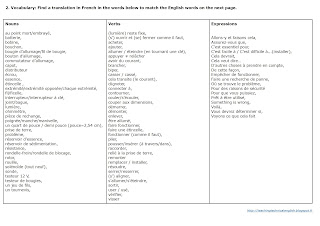Students learn about copyright issues in tractor repairs, and find out about the Open Source and Maker Movement. They also practice their listening, reading, and speaking skills for the BTS final exam.
This video presents the copyright law (DMCA) that bulwark software against hacking and also precludes farmers from fixing their tractors themselves. It also talks about the Open Source and Maker Movement, which arose as a consequence of the restrictive nature of the DMCA.
It can be used as a follow up or an introduction to the Right to Repair - you can find the listening activity and read about it here.
Keywords are: Open Source, Copyright, DMCA, tractors, software, Maker Movement
Example of vocabulary: free (dual meaning), to fix, to build, a tech guy, instead of, unlike, to know how to, to be allowed to, computer chips, sensors, a fine, even, may/might, should, can, unfortunately, sustainability...
I have edited the original video, which was 11 minutes, down to about 4 and a half minutes. The pace is quite fast so it might be a good idea to reduce it slightly (it is very easy to do with VLC and doesn't distort the voice at all).
Debate topics:
- Should everything be open-source?
- Should farmers have the right to break the digital locks and repair their tractors despite the DMCA?
- Should the DMCA apply to tractor software?
Here is the gap-fill exercise/transcript
The full video is available here:
Do Makers Propose a More Open Source Future?, Idea Channel, PBS
Posts on how I carry out listening activities to prepare students of the BTS final exam
Further information on the Maker Movement
Maker movement manifesto
Cécile Sohier


















